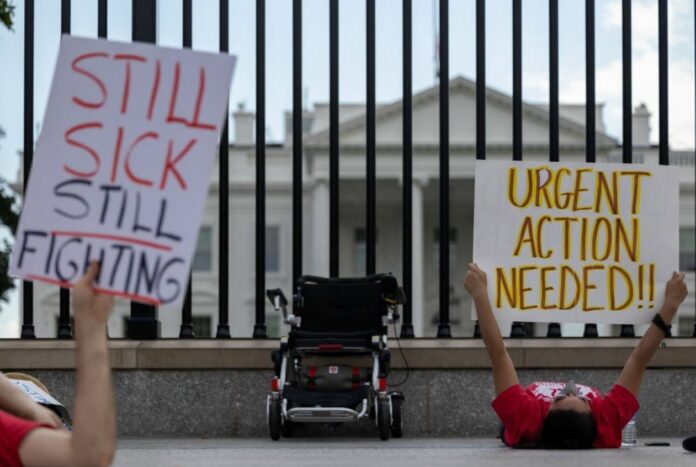Even people with mild COVID-19 infections can have health problems for months or even years after they get sick.
Around 19% of American adults who previously tested positive for COVID-19 state that they have “Long COVID,” meaning that they continue to exhibit signs and symptoms four weeks or more after the infection’s first stage.
In a new study, scientists from Intermountain Health in Salt Lake City examined approximately 150,000 individuals for cardiovascular symptoms in an attempt to define what Long COVID meant to these patients both now and in the future.
They found that between six months and a year after infection, people who tested positive for COVID-19 were more likely to have chest pain.
“Many COVID-19 patients experience symptoms well beyond the acute phase of infection,” says principal investigator Heidi T. May.
“Although they didn’t see any appreciable rates of catastrophic events like heart attack or stroke in individuals who initially had a minor illness, they did discover chest pains to be a persistent issue, “which could be a sign of future cardiovascular complications.”
The Intermountain research findings were presented at the American College of Cardiology’s 2023 Scientific Conference in New Orleans.
There were three groups of Intermountain Health patients compared in the major retrospective study:
• 148,158 individuals who, between March 2020 and December 31, 2021, tested positive for COVID and received outpatient care.
• 148,158 Intermountain COVID-negative patients who were seen in the same months as COVID-19-positive patients and were around the same age and gender.
• A historical control of 148,158 patients seen between January 1, 2018, and August 31, 2019, to take into consideration how people used healthcare differently during the severity of the pandemic.
The team observed that individuals who tested positive for COVID-19 had considerably greater chances of having chest pain at six months and one year, but noticed no changes in other cardiovascular events.
Types of chest pain post-Covid
It appears that there are various possible causes of chest pain following Covid-19, and although our understanding of this condition is still evolving, we continue to learn more about it.
These causes may include:
Muscle discomfort or pain (myalgia)
Muscle soreness in the chest region can be caused by severe viral infections, such as Covid-19, and may manifest as localized or widespread pain. The affected area can be tender to the touch and exacerbated by certain movements, such as twisting or stretching of the chest. This type of chest pain may also occur after physical activity and can be experienced during or after a Covid-19 infection.
General chest pain
Non-cardiac chest pain, also known as general chest pain, can occur anywhere in the chest and may be characterized by sharp or dull sensations that last for a short period or several hours. Unlike muscle soreness, this type of chest pain is not associated with physical activity. Although it is not caused by a cardiac issue, identifying the underlying cause of this type of chest pain can be challenging.
Pleurisy: a kind of chest pain that happens during breathing
If you experience sharp chest pain that intensifies when inhaling, it may be attributed to inflammation of the tissue that separates your ribs and lungs (pleurisy) or inflammation of the lining surrounding your heart (pericarditis). This type of chest pain may be alleviated when you hold your breath or take shallow breaths. If pericarditis is the root cause of your chest pain, lying flat may exacerbate the discomfort, while sitting upright may provide relief.
When should you look for emergency medical attention?
Chest discomfort that is both sudden and severe and persists over time, or sudden chest pain that is accompanied by symptoms such as vomiting, nausea, sweating, or shortness of breath, or sudden chest pain that results in loss of consciousness, warrants immediate medical attention.
According to Dr. May, “As of right now, the [long-COVID] symptoms aren’t necessary translating into hard outcomes,” but the expert emphasized that this is something that would need to be reviewed over the course of time.
It’s possible that the long-term consequences of infection on the cardiovascular system are difficult to measure in terms of short-term diagnoses or other events and won’t be apparent until extended follow-up.
Image Credit: Nathan Posner/Anadolu Agency via Getty Images
